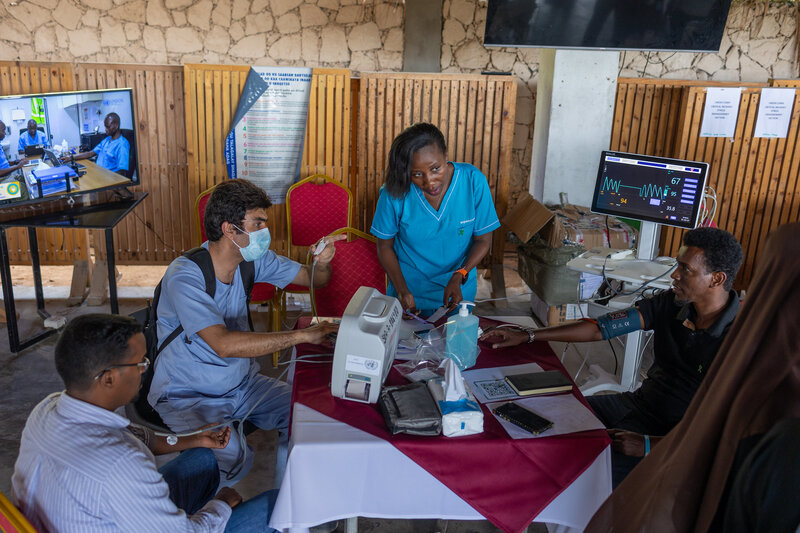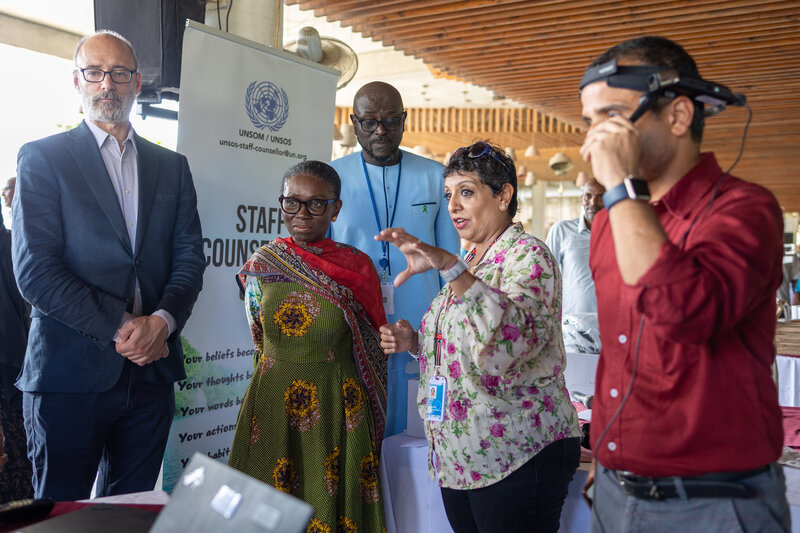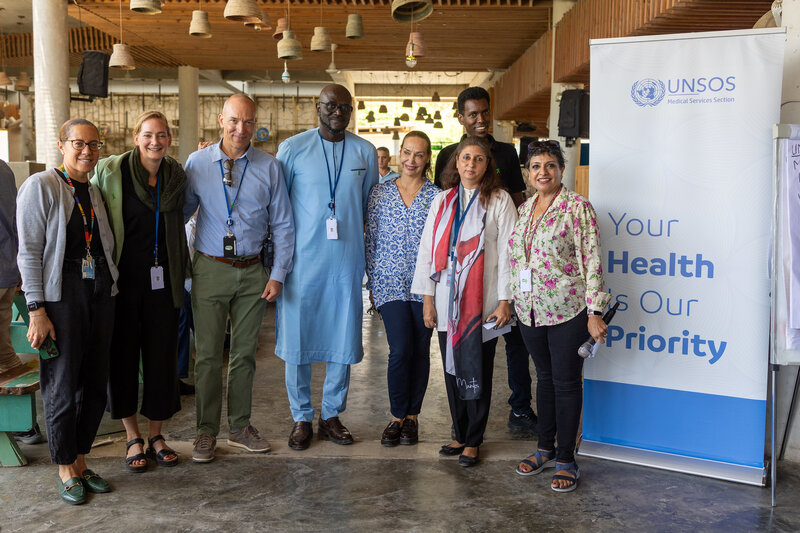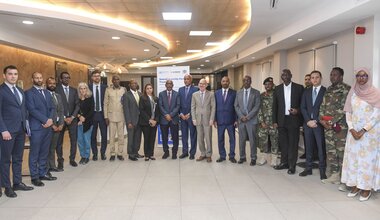UN staff in Somalia mark World Mental Health Day
Mogadishu – The United Nations staff in Somalia, on Tuesday held an event to mark World Mental Health Day to raise awareness about mental health as a critical factor for individuals and communities to achieve their full potential.
The Chief Staff Counsellor-UN Support Office in Somalia (UNSOS), Bhavna Adatia, said UN staff working in Somalia are exposed to risks, which impacts on their mental, physical, and psychological wellbeing.
“We have lots of challenges particularly when we hear ‘incoming, incoming, incoming.’ Our stress response, our animalistic brain kicks in. Our bodies and our minds still go through wear and tear,” said Bhavna.

According to OIC UNSOS Director of Mission Support, Qurat-Ul-Ain Sadozai, the day was dedicated to recognising the challenges UN staff in Somalia constantly face while working in a stressful environment, hence the need to support them to ensure their safety and wellbeing.
“As a team collectively, what can we do to assist each other and ensure that we pay attention to the mental well-being of ourselves, our colleagues and our friends and our staff members?” she said.
Marked on 10 October every year, World Mental Health Day aims to raise awareness of mental health issues globally and mobilise support to address the condition. As part of activities to mark the day and create awareness, the United Nations in Somalia conducted health check-ups and counselling sessions on issues pertinent to staff wellbeing.
Available statistics indicate that, due to years of protracted conflict and civil strife in Somalia, one in three people experience mental health challenges. But for the UN staff members working in Somalia to support the country’s peace-building process, mental health issues increase stress. This is because, staff endure working in a hostile and challenging environment, away from family and friends.

In her remarks, the Deputy Special Representative of the UN Secretary-General to Somalia, Anita Kiki Gbeho, acknowledged that serving in Somalia takes a toll on the mental health of both international and national staff members.
“Between the years 2011 and 2016 the second highest category of leave requests was for mental health,” she observed.
She added, “It takes a toll on each and every one of us to serve. It is there and it's showing up in the data. We all either are affected by or know somebody who is affected by mental health issues. Let us not take it for granted. Let us be that person where the UN says, ‘it’s about people we say we care.’ Let us start by showing that concern and care to each other,” she added.
The UN Resident Humanitarian Coordinator, George Conway, said addressing mental health issues can help the UN mission achieve the peacebuilding and reconciliation agenda in Somalia, where the population is experiencing extraordinary stress due to years of conflict.
He also noted that UN national staff in Somalia are more exposed to dangers and risks associated with working in Somalia than their international counterparts.
“It’s our job as the UN, whether it’s in the political pillar, whether it’s in the development pillar, whether it’s in the human rights pillar, whether it’s in the humanitarian pillar, to be here to support Somali citizens to navigate this current complexity and to help people heal and to reconcile and to find peaceful ways forward,” said Conway.

 UN
UN





